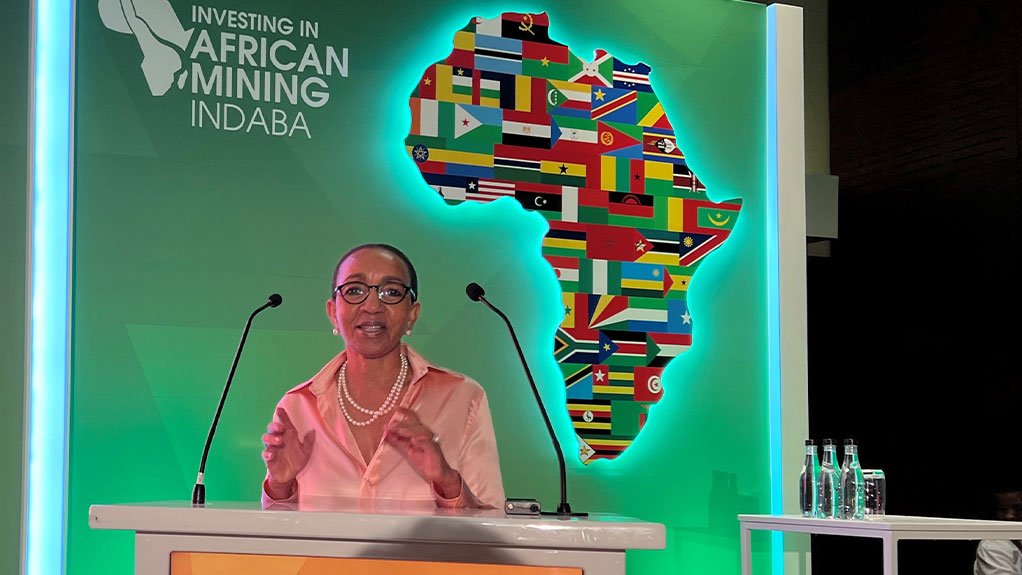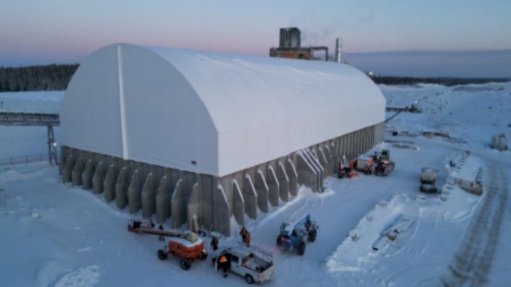Opinion: Takeways from the 2024 Mining Indaba
In this article, policy advisor and Associate Fellow of Chatham House Sheila Khama writes that the Investing in African Mining Indaba is progressively repositioning itself internally but also being shaped by external forces.
Just 15 years ago, being a miner felt like pushing water uphill. The industry was viewed by Development Finance Institutions (DFIs), donors, civil society and fund managers as the environment’s enemy number one. Not anymore and instead, thanks to demand for metals driven by industries for transition to clean energy and digital technologies, the world has come full circle and mining is now one of the vehicles for a decarbonized world. The question is no longer whether we should mine, but how fast and how much more. Public policy focuses on the need for responsible mining based on accepted Environment, Social and Governance standards (ESG). Fund managers are on board but demand “Impact Investing” to ensure mutual benefits by all stakeholders while minimizing project physical and carbon footprint.
CRITICAL MINERALS SECURITY OF SUPPLY
It was clear that African policymakers punched below their weight on matters of critical minerals trade and investments. The conversation on security of supply of metals continued to be dominated by the industrialized world. But for Americans, Chinese, and Europeans governments and investors, Africa remains firmly on the radar’s screen. UK Critical Minerals Strategy - GOV.UK (www.gov.uk) What was missing however were initiatives led by African policymakers to advance Africa’s needs. Specifically missing were debates on what minerals are necessary to industrialize the region. The region’s strategy is a response to others instead of being one driven by enlightened self-interest as one might expect. If this matter is not addressed, the region risks missing out on benefits from green industrialization. https://www.project-syndicate.org/commentary/how-africa-can-manage-mineral-deposits-by-marit-kitaw-
A VERTICALLY INTEGRATED VALUE CHAIN
The mineral value chain is increasingly getting compressed. Wherein for 30 years conference activities concentrated on upstream activities, this time the program included manufacturers of cars, batteries and other technologies relating to transition to clean energy. Not surprising because to secure supply of metals for decarbonized industrial processes and goods, manufacturers increasingly see value in investing upstream. On the other hand, in order to capture value from increased demand, some miners are contemplating investing in manufacturing.
US FEDERAL GOVERNMENT
The US ramped up its presence again. The contingent included, Amos J. Hochstein, who is the Special Presidential Coordinator for Global Infrastructure and Energy Security. Amos J. Hochstein - United States Department of State, Chairwoman of US EXIM Bank, https://www.exim.gov, Ms Reta Jo Lewis and Ms British Robinson head of Our Partners - Prosper Africa. This presence and the investment by US firms in the Lobito Corridor Project. Supply Chain Latest: US Lobito Corridor project in Africa - Bloomberg and possibly the rail between the DRC and Zambia attest to Washington’s seriousness to engage African stakeholders and especially in the area of minerals and infrastructure.
DIVERSITY AND INCLUSION
For a long time, the event was dominated by companies from Australia, Canada, South Africa and African State-Owned Enterprises. However, over the years, this has changed as increasingly one sees Canadian juniors, American majors, Chinese investors, and more recently those from the Gulf. Maaden - Homepage This offers African governments and entrepreneurs opportunities to form strategic partnerships throughout the value chain. Pleasingly, in an industry dominated by men, women have found their place in executive quarters Anglo American – Kumba Iron Ore (angloamericankumba.com) Women are also increasingly making their mark as investors. Kalahari Resources (kalagadi.co.za) and https://indlovukazimnr.co.za/ In this sense, South Africa leads thanks to BEEE initiatives. The question becomes, can the rest of Africa take a leaf from the country’s book? Equally, the voices of the youth rose, and this is a good thing.
FUTURE PROJECT PIPELINE
When it comes to a share of exploration budgets, the Africa region has lagged behind other mineral rich jurisdictions like Australia and Canada for more than two decades. So, while there was some enthusiasm during the event, this has not changed according to reports that suggest a 3% drop in 2023.
This is not good news especially in a region in which very little exploration in Rare Erath Elements (REE) occurred in the first place. Lack of exploration will shrink the industry and entire value chain at a time when the rest of the world is gearing up. The timing is especially unfortunate as it coincides with cash rich Gulf States entering the mining industry and able to subsidize explorers as is the case in the Saudi Kingdom. Others from the United Arab Emirates (UAE) are simply buying matured assets. So, the competition has just got tougher.
THE ACHILLE’S HEEL
The problem of infrastructure including energy, rail and ports was a major preoccupation for DFIs governments and investors Anglo American plans production cuts as rail woes, volatile conditions bite | Business (news24.com). Quite apart from constraining imports and exports, costs from delays erode profit margins. In his opening remarks the President of South Africa acknowledged the problem and announced that he had established a ‘Freight Crisis Committee” to address the problem. The President also stated that his country is in consultation with mining companies such that the companies can independently generate power. This liberalization of policy should be welcome by large companies but can fracture national infrastructure. The solution might also not work for juniors, SMEs and manufacturers of light goods.
Either way, mining remains a force to be reckoned with and the words of President Cyrill Ramaphosa that the industry has been one of the cornerstones of his country’s economy for a more than a century will have been music to the ears of many.
*Sheila Khama is a Policy Advisor, Podcast Host, NED of FTSE, NASDAQ and ASX companies and an Associate Fellow of Chatham House. She is former CEO of De Beers Botswana, a former NED in Debswana and DTC Botswana.
Comments
Press Office
Announcements
What's On
Subscribe to improve your user experience...
Option 1 (equivalent of R125 a month):
Receive a weekly copy of Creamer Media's Engineering News & Mining Weekly magazine
(print copy for those in South Africa and e-magazine for those outside of South Africa)
Receive daily email newsletters
Access to full search results
Access archive of magazine back copies
Access to Projects in Progress
Access to ONE Research Report of your choice in PDF format
Option 2 (equivalent of R375 a month):
All benefits from Option 1
PLUS
Access to Creamer Media's Research Channel Africa for ALL Research Reports, in PDF format, on various industrial and mining sectors
including Electricity; Water; Energy Transition; Hydrogen; Roads, Rail and Ports; Coal; Gold; Platinum; Battery Metals; etc.
Already a subscriber?
Forgotten your password?
Receive weekly copy of Creamer Media's Engineering News & Mining Weekly magazine (print copy for those in South Africa and e-magazine for those outside of South Africa)
➕
Recieve daily email newsletters
➕
Access to full search results
➕
Access archive of magazine back copies
➕
Access to Projects in Progress
➕
Access to ONE Research Report of your choice in PDF format
RESEARCH CHANNEL AFRICA
R4500 (equivalent of R375 a month)
SUBSCRIBEAll benefits from Option 1
➕
Access to Creamer Media's Research Channel Africa for ALL Research Reports on various industrial and mining sectors, in PDF format, including on:
Electricity
➕
Water
➕
Energy Transition
➕
Hydrogen
➕
Roads, Rail and Ports
➕
Coal
➕
Gold
➕
Platinum
➕
Battery Metals
➕
etc.
Receive all benefits from Option 1 or Option 2 delivered to numerous people at your company
➕
Multiple User names and Passwords for simultaneous log-ins
➕
Intranet integration access to all in your organisation




















